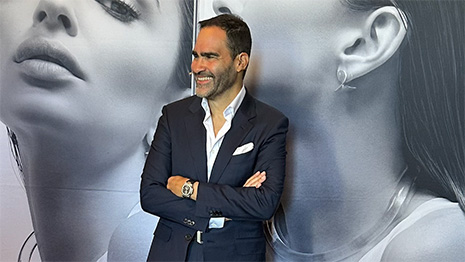 Daniel Langer is the founder and CEO of consulting firm Équité
Daniel Langer is the founder and CEO of consulting firm Équité
Jonathan Anderson’s debut at Dior was more than a fashion moment.
It was a signal. A strategic inflection point for a legacy brand recalibrating itself to meet a new cultural and generational reality.
And if luxury brands are paying attention, they’ll recognize that the real takeaway wasn’t in the clothes, but in the storytelling.
In the past, Dior Men flirted with formality, often prioritizing perfection over presence.
Anderson’s first collection shifted that balance. He brought with him not just design signatures from Loewe: textural contrast, art references and nonchalant construction.
But with a deeper cultural fluency. What we saw on the runway wasn’t simply a new look.
It was a new lens. And for Dior, a powerful opportunity to reframe what masculine luxury means today.
This is exactly where many luxury brands falter. They focus too narrowly on product innovation and neglect the emotional, narrative and experiential dimensions that actually drive desire.
As I have argued over the years, clarity in brand storytelling isn’t a luxury.
It’s a prerequisite for value creation. And Anderson’s Dior debut proves the point.
The collection featured Basquiat and Warhol portraits, nods to Lee Radziwill and Chardin, and a clever interplay of undone elegance: collars half-raised, shirts half-tucked. It was identity-aware.
Not didactic, not pandering, just thoughtful. That matters more than ever.
Today’s luxury clients, especially Gen Z and younger millennials, are buying into story, values, and meaning. They want to know what a brand stands for and, importantly, whether that aligns with their worldview.
This is where Anderson’s Dior signals strategic clarity. It embraces complexity without losing coherence. It builds on heritage while inviting contemporary relevance.
And perhaps most critically, it sets the stage for a long-term brand narrative rather than chasing short-term virality. Luxury brands often fall into the trap of chasing attention.
The danger is that in trying to be everything to everyone, they become nothing to anyone. Dior, in contrast, is staking a position.
It’s not trying to shock. It’s trying to evolve.
There’s courage in that. And also business wisdom.
Because price reflects value. And (extreme) value, in the luxury sector, is not defined by features or functionality.
It is built emotionally, experientially, and through the story, as I have written many times using my 4E of luxury framework as a reference point. Desire precludes the transaction.
Anderson’s approach invites deeper engagement, precisely because it doesn’t over-explain. It trusts the audience’s intelligence.
It gives them something to interpret, to project into, and to desire. The call to action for other luxury brands is clear: audit your story.
Is it coherent? Is it resonant? Is it distinctive?
Too many brands today look interchangeable—competent but unmemorable. The ones that will win the next decade are those that embrace emotional clarity, cultural relevance, and brand-led vision.
Anderson’s Dior is still in its early stages. But it already provides a roadmap.
Marrying product with cultural storytelling. Marrying heritage with evolution and, above all, respecting the intelligence of today’s luxury client.
It’s not enough to look luxurious. You need to feel meaningful. Are you ready?
Luxury Unfiltered is a weekly column by Daniel Langer. He is the CEO of Équité, a global luxury strategy and creative brand activation firm, where he is the advisor to some of the most iconic luxury brands. He is recognized as a global top-five luxury key opinion leader. He serves as the executive professor of luxury strategy and pricing at Pepperdine University in Malibu and as a professor of luxury at New York University, New York. Dr. Langer has authored best-selling books on luxury management in English and Chinese and is a respected global keynote speaker.
Dr. Langer conducts masterclass management training on various luxury topics around the world. As a luxury expert featured on Bloomberg TV, Financial Times, The New York Times, Forbes, The Economist and others, Mr. Langer holds an MBA and a Ph.D. in luxury management and has received education from Harvard Business School. Follow him on LinkedIn and Instagram, and listen to his Future of Luxury Podcast.